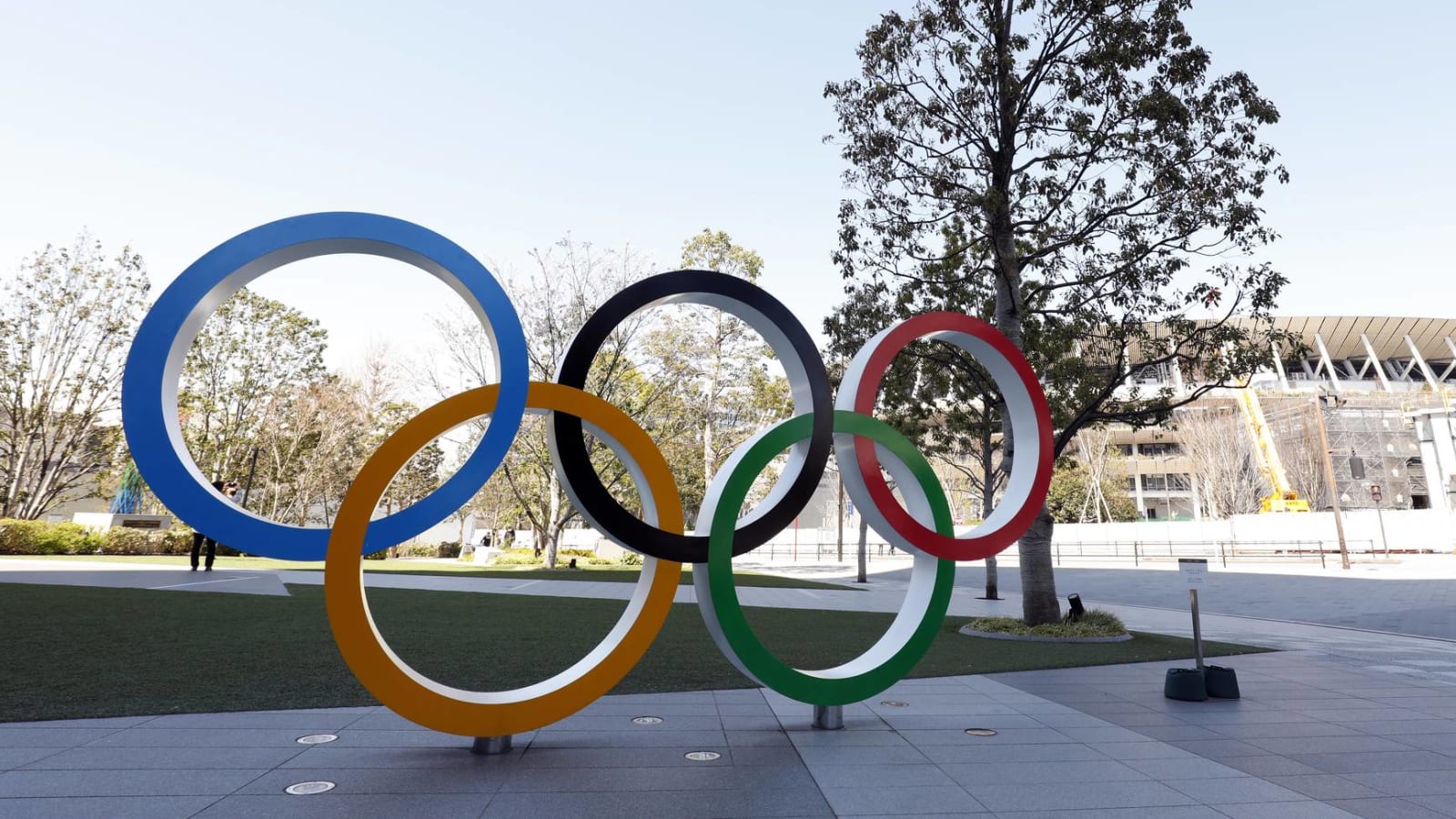
10 updated storylines for the Tokyo Olympics
The coronavirus global pandemic has obviously taken its toll on the sports world, including the 2020 Summer Games in Tokyo, which were postponed — the first time that's ever happened.
Those Games have been pushed to 2021 (July 23-Aug. 8, 2021), a move that the International Olympic Committee and Japanese officials apparently needed some time to make. Regardless, it was the proper choice and, justly, there was hardly any resistance to the decision.
That said, the Games will eventually go on. But what will happen up until then, and what will it all look like when we finally make it to the opening ceremonies? Here are 10 new storylines to keep in mind ahead of the Tokyo Games.
Uncertainty equals realism
The city of Tokyo and the nation of Japan got a 16-month extension to get ready for the Games. In theory, that seems like more than enough time to be well prepared to host. That's assuming the Games actually go on.
Toshiro Muto, CEO of the Tokyo Olympics organizing committee, said this month, "I don't think anyone would be able to say if it is going to be possible to get (the coronavirus) under control by next July or not." At the moment, Japan is under an emergency declaration as the country continues to deal with a fast-spreading virus that was responsible for approximately 5,000 reported cases and 100 deaths as of early April.
All would like to believe the world will be back to a sense of normalcy (though that might look different) by July 2021, but it's only wise to understand how fluid this situation remains.
That's a hefty price tag
It's been widely reported that postponing the Games will cost Japan between $2 billion and $6 billion. A majority of the cost would be associated with maintaining stadiums and venues for competition. There's obviously also the cost of lost revenue from what ESPN expected to be the roughly 600,000 tourists who would have taken in the Games.
At the moment, it's unknown how to pay the bill, or more importantly, who will be responsible for paying it. It's also important to keep in mind that we don't know what, if any, social distancing restrictions will be put in place by next July. For that matter, will people — and perhaps some athletes — feel comfortable traveling to be among hundreds of thousands even if a vaccine is in use and there's a genuine uptick in social safety?
IOC leadership
It's needed now more than ever.
There are many pundits, athletes, coaches and the like who feel the International Olympic Committee dragged its feet on announcing the postponement. Now the seemingly always-embattled IOC must show its mettle. The uncertainty of the coronavirus might be just as threatening as the COVID-19 disease it causes, thus the IOC must be prepared to make intelligent decisions, and likely in a timely manner.
Sure, money is a driving force when it comes to any Olympics — television, advertising, sponsorships, etc. However, the athletes and their countries need to have complete confidence and trust in an organization that hasn't always demonstrated either.
It's still about the athletes
Logistics and finances aside, perhaps the biggest question surrounds the athletes who will actually be competing in the Games. Qualification periods and deadlines will be changed, and quotas will be retained, reportedly. Naturally, though, there is plenty that seems uncertain.
Those who have already qualified for the now 2020 Summer Games will still have a place come 2021. That would seem obvious, but under current circumstances, it's probably not safe to assume anything goes as planned.
It remains to be seen how the age-limit eligibility will play out —meaning, if an athlete was not of age to be eligible for Olympic competition in 2020 but will be for the 2021 version. Questions also abound in regard to the status of national and world championship competitions scheduled for 2020.
They're the lucky ones
While the most prominent of the world's athletes agreed with the postponement, and many pushed for it before it became official, there's a portion truly grateful for the decision. Athletes serving doping bans through 2020 will be eligible to compete in 2021, since those suspensions are based on time and not competition.
Perhaps the most notable in that category is Turkey's Gamze Bulut, who won the silver medal in the 1,500 meter run at the 2012 Olympics. That prize, however, was stripped due to blood doping. Her suspension would end by the time the 2021 Games roll around.
The idea of fairness, then, is posed as to why such athletes, like Bulut, now have the chance to qualify. If doing so, will it be at the expense of an athlete who did things the right way?
But not in Russia
While suspended athletes with bans through 2020 are in position for a shot at the Tokyo Games, that's not the case for Russia as a collective. The nation is amid a four-year Olympic ban for allegedly manipulating its doping data.
At the moment, the Russians are still out of the next Olympics and its athletes must compete under a unified flag. However, Oleg Matytsin, Russia's sports minister, feels the International Olympic Committee and the World Anti-Doping Agency should essentially wipe the slate clean when we come out on the other end of the pandemic.
The Court of Arbitration for Sport is expected to rule on the validity of Russia's suspension, but it's uncertain when that will actually happen.
Biles' last stand - extended
Plenty of eyes will be on star United States gymnast Simone Biles, who's had what is likely to be her final Olympic appearance pushed back one year. Though Biles admits the current situation is not ideal to her training and competitive mindset, the focus to build on her four gold medal-winning effort from 2016 is still strong.
A five-time Olympic medalist overall at Rio four years ago, Biles remains the focal point of the U.S. team, regardless of sport. However, it will be interesting to follow her training over the next year and also her health. For many athletes who have ramped up their physical and mental training, it might be difficult to adapt and, eventually, return to that level at this point next year.
Other athletes to keep in mind
Biles is obviously not the only athlete to keep an eye on when the Olympics finally get underway.
Staying in the U.S., swimmer Katie Ledecky also is looking to see if she can better herself after winning four golds and a silver in 2016. On the track, there's Allyson Felix, whose nine Olympic track and field medals are tied for the most in history. Rising stars Noah Lyles and Christian Coleman also should be worthy of the spotlight by the time the Tokyo Games roll around.
On the international front, don't forget 11-year-old Great Britain skateboarder Sky Brown. The outgoing Brown, who was born in Japan, has not yet technically qualified for the Games; however, the world fully expects her to be competing in Tokyo next summer.
How about LeBron and Tiger?
Back to the U.S. for a moment. The presence of either LeBron James or Tiger Woods, and especially both, would draw plenty of worldwide attention to the Olympics. The question still remains, however, if either will be part of the Tokyo experience.
James, reportedly, was going to see how the NBA season played out, meaning how long of a run his Los Angeles Lakers would make. That doesn't matter now, but one would think that even if the world's current health situation was tempered and all was clear to responsibly go ahead with the Games in 2021, James might still opt out. More likely is if the Lakers go deep in whatever the postseason looks like next year or just because he does not want the hassle.
In Woods' case, he would first have to qualify for the U.S. golf team. That's far from certain, and health tends to be a major factor with Tiger these days. Again, the climate of the PGA Tour and world golf in general will certainly factor in.
Further down the road
While the immediate Olympic focus should rightfully be on Tokyo in 2021, what about the Beijing Winter Games in 2022 and the Paris Summer Olympics in 2024?
China still says it's on schedule to continue with plans to host said Winter Games, though it claimed the Tokyo postponement puts Beijing in "a special situation" when it comes to essentially being on the heels of the Summer Olympics. Paris, meanwhile, has a little more time before it needs to fret but is already looking at how things could change for the organizers of those Games in terms of marketing and communications, just to name a few areas of potential concern.
More must-reads:
- Tokyo 2021 Olympics could be in doubt due to coronavirus pandemic
- Japanese scientist 'pessimistic' on '21 Games
- The 'Most passing + rushing TD games' quiz
Breaking News
Trending News
Customize Your Newsletter
 +
+
Get the latest news and rumors, customized to your favorite sports and teams. Emailed daily. Always free!








